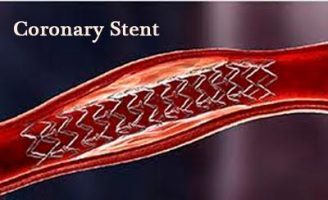- Home
- Editorial
- News
- Practice Guidelines
- Anesthesiology Guidelines
- Cancer Guidelines
- Cardiac Sciences Guidelines
- Critical Care Guidelines
- Dentistry Guidelines
- Dermatology Guidelines
- Diabetes and Endo Guidelines
- Diagnostics Guidelines
- ENT Guidelines
- Featured Practice Guidelines
- Gastroenterology Guidelines
- Geriatrics Guidelines
- Medicine Guidelines
- Nephrology Guidelines
- Neurosciences Guidelines
- Obs and Gynae Guidelines
- Ophthalmology Guidelines
- Orthopaedics Guidelines
- Paediatrics Guidelines
- Psychiatry Guidelines
- Pulmonology Guidelines
- Radiology Guidelines
- Surgery Guidelines
- Urology Guidelines
Additional stenting may reduce odds of further heart attack, finds NEJM Study

Heart attack patients who have had emergency heart attack treatment with artery stenting, additional stenting in them may reduce the risk of a further heart attack compared to those who had just usual tablet treatment for managing the untreated narrowings, according to the findings of an international trial presented at the European Society of Cardiology (ESC) meeting in Paris on September 2019 and simultaneously published in the New England Journal of Medicine(NEJM).
Read also: Multiple Stenting through Keyhole Surgery is the new trend in elderly suffering from advanced cardiac ailments
This COMPLETE trial showed that patients who underwent routine additional stenting had a lower risk of further heart attacks or heart-related death, compared to those who had just usual tablet treatment for managing the untreated narrowings (7.8 per cent versus 10.5 per cent over five years). They also had less than one-fifth the risk of needing further emergency treatment for their heart arteries in the future.
A stent is a tiny mesh tube that is inserted into affected, or clogged, arteries and expands to keep them open, reducing the chance of further heart attacks by allowing the blood to flow more freely around the heart.
As part of the international clinical trial of over 4000 patients, additional analysis of the study has been presented at the Transcatheter Cardiovascular Therapeutics (TCT 2019) meeting in San Francisco (Saturday 28 September 2019), looking at whether timing of the second stenting procedure - either during the same hospital admission or as a later outpatient procedure - was important in achieving the beneficial effects.
Read also: Oral Rapamycin may prevent restenosis after Coronary bare metal Stent implantation: JACC
Similar benefits were seen regardless of whether the second procedure was performed as an in-patient or within six weeks as an outpatient.
Over 700 UK patients took part in the UK investigations led by Rob Storey, Professor of Cardiology at the University of Sheffield and Academic Director and Honorary Consultant Cardiologist in the Cardiology and Cardiothoracic Surgery Directorate at Sheffield Teaching Hospitals NHS Foundation Trust.
Professor Storey, who was also a member of the executive team running the study, said: "We have made huge strides in the treatment of heart attack over the last 20 years with the development of new drugs and new stents continuously improving the effectiveness of heart artery stenting. For example, in Sheffield we have led the way in the development of ticagrelor, which has markedly reduced the risk of stent blockage and further heart attack, and this is now a standard treatment for heart attack around the world."
One of the questions that had remained unanswered until now was whether or not patients with significant narrowings elsewhere in their main heart arteries benefit from additional routine stenting of these narrowings immediately after they have had emergency treatment to open a blocked heart artery.
"The COMPLETE study answers this question emphatically, showing that further stenting should be the standard treatment for these patients whenever feasible," Professor Storey added.
"The results of our additional analysis shows that the dominant UK practice of bringing patients back as an outpatient for their second procedure was just as beneficial as performing the second procedure in hospital at the time of the initial hospital admission since the benefits accrued over many years.
Read also: Dual drug delivery system may make heart stents safer
"So this strategy fits very well with UK best practice since patients can return within a month or so for an outpatient stenting procedure and still receive the same benefit compared to staying in hospital as an inpatient longer after their heart attack for the second procedure. This marks another milestone in the relentless progress towards improving the long-term outlook of heart attack patients."
For more details, click on the link
http://dx.doi.org/10.1056/NEJMoa1907775

Disclaimer: This site is primarily intended for healthcare professionals. Any content/information on this website does not replace the advice of medical and/or health professionals and should not be construed as medical/diagnostic advice/endorsement or prescription. Use of this site is subject to our terms of use, privacy policy, advertisement policy. © 2020 Minerva Medical Treatment Pvt Ltd